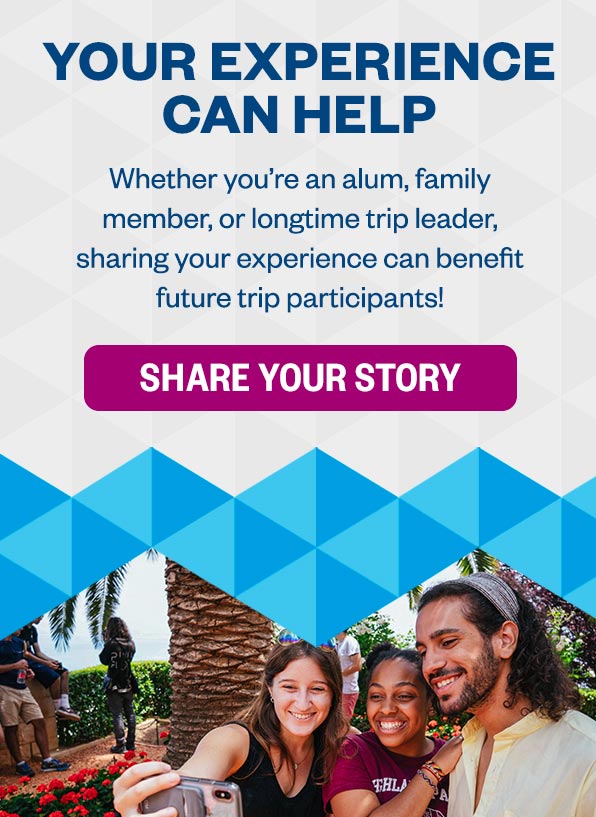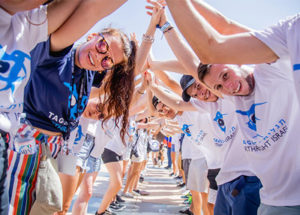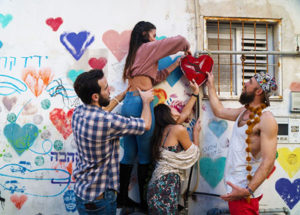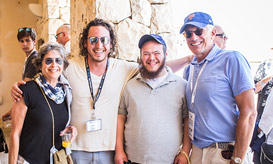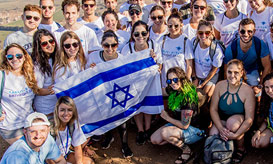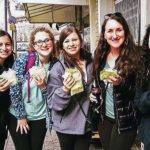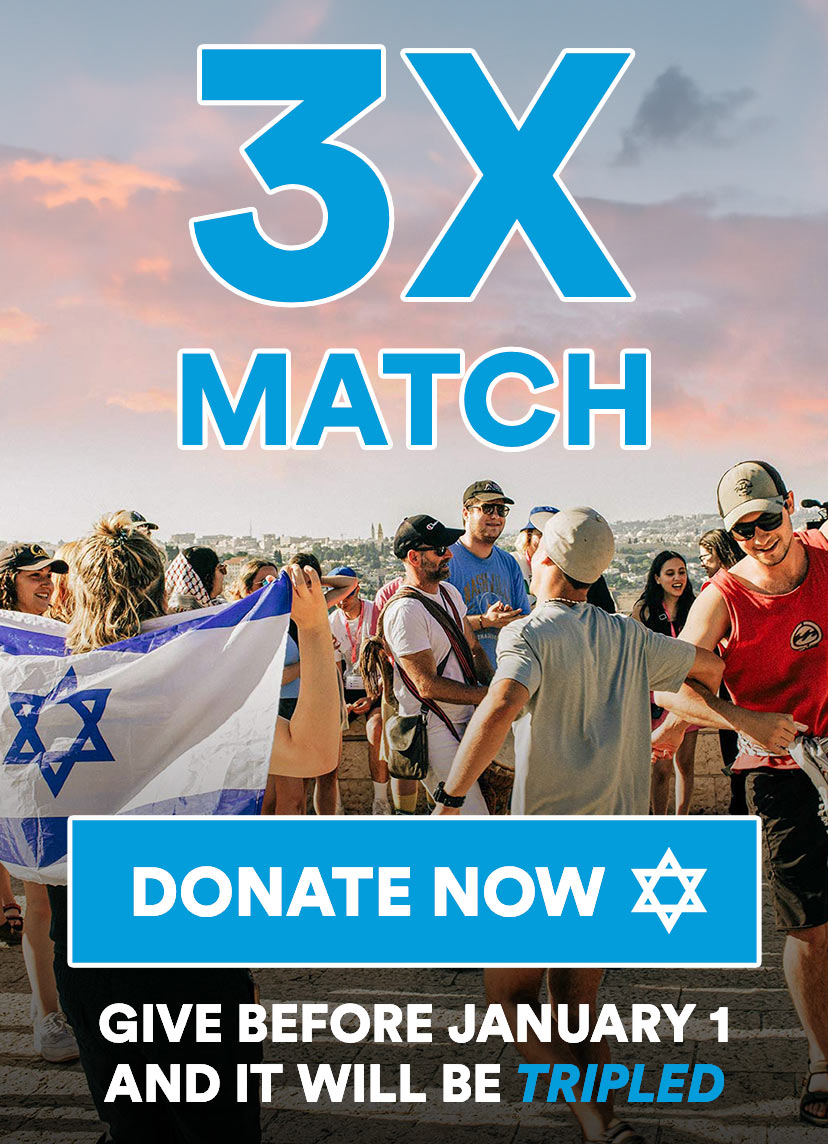Who would have thought when the Birthright Israel program was founded 20 years ago, that our…
I was raised in an interfaith family. My mother is Jewish, and my father is Catholic. Religion wasn’t an important aspect of my life. I didn’t grow up going to synagogue, temple, or church. My parents wanted us to believe whatever was best for my older brother and me. However, to understand my Jewish heritage and the Christian cultural aspects, we did recognize both Hanukkah and Christmas. We would celebrate Hanukkah for a few days, and then celebrate the rest of the holiday spirit on Christmas. I felt fortunate to have the best of both worlds in my household.
Nevertheless, I still felt like it wasn’t enough. While some of my schoolmates went to CCD classes or Hebrew school after school, I went straight home to do my homework or other after-school activities. It was quite confusing as a kid – why am I one of the few not going to classes to learn about my religious background?
My Jewish Heritage and Middle School
In middle school, I transferred to a private Catholic school for seventh and eighth grade due to severe bullying. As someone who was raised with cultural aspects of two religions, Catholic school with culture shock. During those two years, my worst experience was when the kids in my religion class found out I was Jewish. I was asked many questions; some I could answer (to the best of my ability, of course), and there were other questions I didn’t know how to answer. At lunchtime, I was ridiculed and teased about my Jewish heritage. It was incredibly embarrassing and hurtful. At the moment, I despised the concept of religion. I felt like I didn’t belong in the community. Fortunately, middle school doesn’t last forever, and the emotional wounds faded over time.
Taking Advantage of Birthright Israel to Learn More
Then, finally, I learned about Birthright Israel when I was a college student. Many of my Jewish friends would rave about it and how much it changed their life. My mother was also a big encouragement during this time. She thought it would be an excellent opportunity to learn more about my Jewish heritage and identity. The idea was quite inviting, but of course, there were some hesitations… Should I go with a friend? Should I be brave and go alone? Is it really safe to travel to Israel right now? How much Hebrew do I need to know to get around the country? But after years of contemplating the decision, my college friend Zach and I sent out our applications in late 2019. We both discussed going on Birthright Israel on numerous occasions, and it was finally time.
Fast forward to January 2020. There we were at JFK airport with thirty-something strangers on our way to the Holy Land to discover more about our Jewish heritage. Seven hours later, we landed and were off on a big journey. Not a trip, a journey. Making new friends was a huge delight on Birthright Israel, but I still had that feeling of hesitation in my heart. Many of them would be talking about their experiences with Hebrew school, their Bar/Bat Mitzvahs, and other Jewish customs they got to experience growing up. I was scared I wouldn’t be Jewish enough like the other participants, or that it will be middle school all over again.
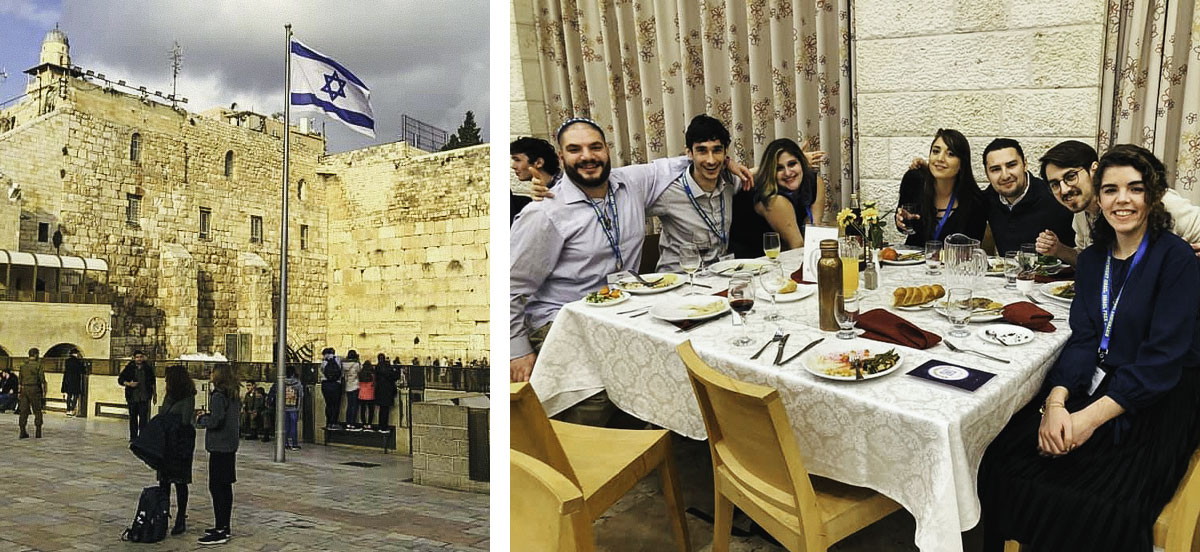
I Discovered I Was “Jewish Enough”
However, that slowly faded away during those ten days. I cried my heart out at Yad Vashem, the Western Wall, and Mount Herzl. Then went on to try authentic foods and snacks, from savory shawarma to the sweet and seasonal Krembo. I talked to our Israeli participants about what it’s like to be in the Israel Defense Forces or what Judaism means to them. I even got to experience my very first Shabbat, an aspect I’ve always known but never experienced.
Within the short time of being there with my group and the Israelis, they opened my eyes to how Judaism can be a big, unique melting pot. It’s about unity, it’s about celebrating life, it’s about sharing ideas, and most importantly- it’s about your mishpacha.
In the end, I felt welcomed to be there without being judged or questioned for my blended background. Every single participant I met had their own definition of Judaism, and for the first time in forever, I feel valid with this part of my identity. With that said, I am proud to call myself “culturally Jewish.”
Becoming a Bat Mitzvah
Then came the opportunity to have a Bar or Bat Mitzvah. We were asked by our group leader Yitzy to think of a commitment, and to come up with our own Hebrew name for the ceremony. I was nervous thinking about what I wanted to commit to, but then it hit me. I thought back to when I asked my Israelis numerous questions, such as what parts of American pop culture did they like or if they could teach me any phrases in Hebrew. Throughout my life, I’ve always loved learning about foreign cultures and languages. So, I decided to commit to teaching. Since coming back to the United States, I’ve decided to look into certification programs for ESL teaching to continue working with people from around the world.
Additionally, I want to continue being involved with Birthright Israel by becoming a group leader, to make participants who didn’t feel “Jewish enough” like I had, validated. Plus, I want them to have a desire to explore their Jewish heritage. Finally, the Hebrew name I chose during my Bat Mitzvah is Aviv Shoshannah. Aviv because I was born during the springtime, and Shoshannah because my actual middle name is Susannah. We all deserve our best chance, and my Bat Mitzvah was the moment I realized mine.
I want to thank many people for my Birthright Israel experience on an Arts and Entertainment niche trip. I’d also like to thank my group leaders Yitzy and Arielle, for bringing the ultimate pep and energy and my Tour Educator Orna for being a wonderful guide. Of course, I cannot forget all of the incredible participants on Bus 196 – you guys are indeed one of a kind, and I’m immensely grateful I got to grow with you all. Toda raba!

